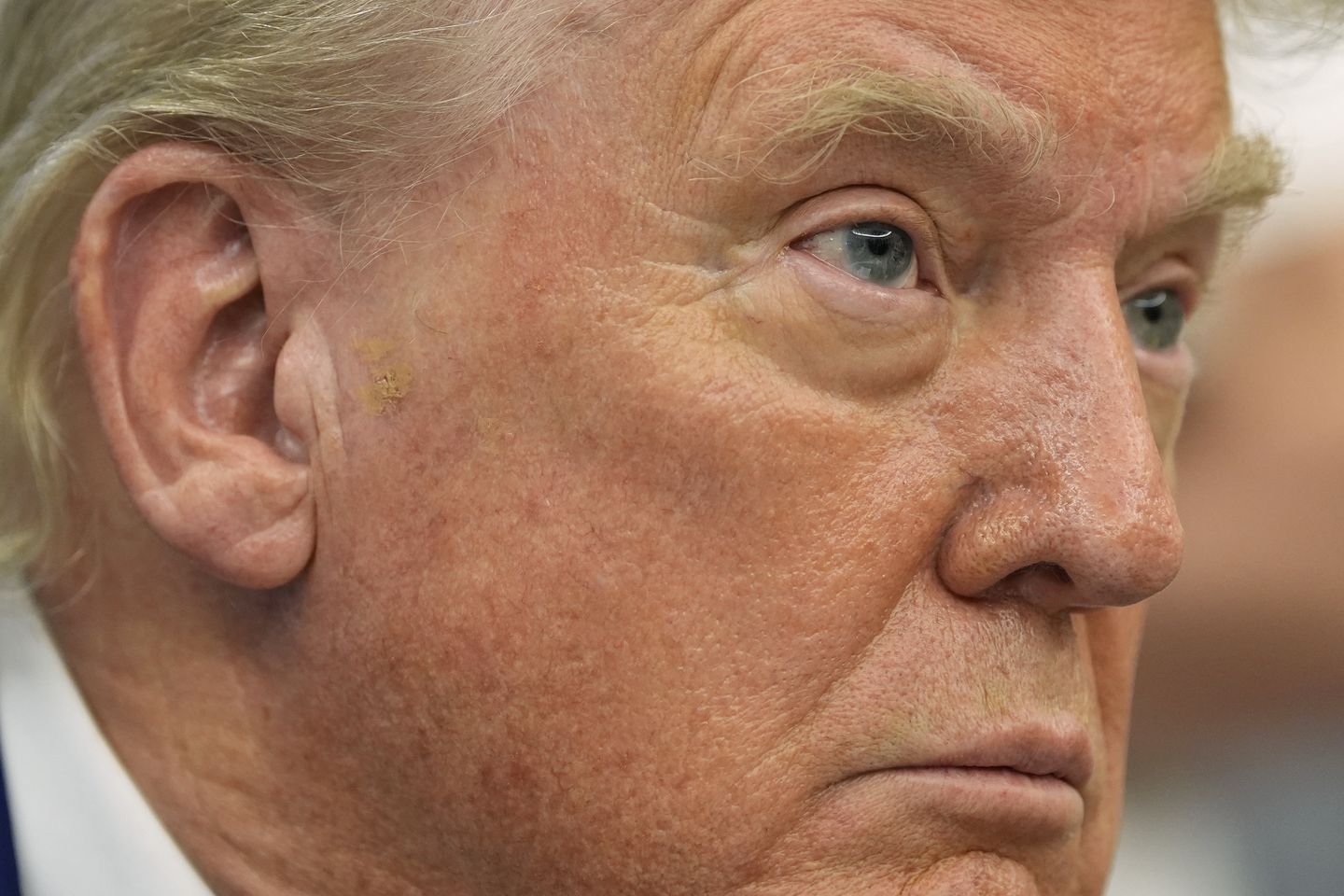
Don’t miss the full story from our staff writers, whose reportage is the basis of this article.
President Trump faces a critical decision on whether to deploy U.S. military forces alongside Israel’s ongoing bombing campaign against Iranian nuclear and military facilities. Speaking from the White House, Mr. Trump indicated he may wait until the last moment to decide on military involvement, stating that “things change, especially with war” and describing the coming days as “very big.”
The administration has significantly increased military assets in the Central Command region, deploying F-16s, F-22s, F-35s, C-17 cargo aircraft, refueling tankers, and a second aircraft carrier, the USS Nimitz. The State Department has begun evacuating nonessential diplomatic personnel from the U.S. Embassy in Israel as tensions escalate.
Mr. Trump’s potential military involvement would likely target Iran’s underground nuclear facilities at Fordo and Natanz, using precision-guided bombs deliverable only by U.S. B-2 bombers. The president emphasized that America possesses unique capabilities to penetrate facilities 200 feet underground, though he stressed this doesn’t guarantee action.
In an unexpected diplomatic twist, Mr. Trump revealed that Iranian leaders have requested meetings at the White House, though he expressed skepticism about the timing. He previously set a 60-day deadline for Iran to agree to a new nuclear deal, which expired without Iranian compliance.
The conflict began Friday when Israel initiated bombing operations, citing Iran’s imminent nuclear weapon development. President Trump maintains that Iran was “weeks away” from nuclear capability and cannot be allowed to possess such weapons, believing Iran would actually use them unlike other nations.
Despite criticism from some supporters, including Tucker Carlson and elements of his MAGA base opposing military involvement, Mr. Trump defended his position by emphasizing his “America First” agenda and supporters’ opposition to Iranian nuclear weapons.
Iran’s Supreme Leader Ayatollah Ali Khamenei rejected Mr. Trump’s demands for unconditional surrender, calling the president’s statements “threatening and absurd.” The ayatollah warned of retaliation if the U.S. joins Israel’s campaign, while Iranian officials insisted they would continue uranium enrichment for “peaceful purposes.”
Israel has conducted intensive operations, launching three aerial attack waves in 24 hours with dozens of warplanes striking over 60 targets in Tehran and western Iran. These strikes hit missile launchers, weapons facilities, Hezbollah-linked production sites, and Iran’s internal security headquarters.
Iran has responded with hundreds of missiles and drone attacks, killing at least 23 Israelis and wounding hundreds more. Defense Secretary Pete Hegseth told Congress the Pentagon stands ready with options, emphasizing that “President Trump’s word means something” while declining to reveal specific contingency plans.
Read more: Trump weighs an 11th-hour decision for U.S. military strikes on Iran
This article is written with the assistance of generative artificial intelligence based solely on Washington Times original reporting and wire services. For more information, please read our AI policy or contact Ann Wog, Managing Editor for Digital, at awog@washingtontimes.com
The Washington Times AI Ethics Newsroom Committee can be reached at aispotlight@washingtontimes.com.


![Former Bravo Star Charged After Violent Assault Using a Rock-Filled Sock in Tennessee Walmart [WATCH]](https://www.right2024.com/wp-content/uploads/2025/07/Former-Bravo-Star-Charged-After-Violent-Assault-Using-a-Rock-Filled-350x250.jpg)



![Karoline Leavitt Levels CNN's Kaitlan Collins and Other Legacy Media Reporters [WATCH]](https://www.right2024.com/wp-content/uploads/2025/07/Karoline-Leavitt-Levels-CNNs-Kaitlan-Collins-and-Other-Legacy-Media-350x250.jpg)
![Man Arrested After Screaming at Senators During Big Beautiful Bill Debate [WATCH]](https://www.right2024.com/wp-content/uploads/2025/06/Man-Arrested-After-Screaming-at-Senators-During-Big-Beautiful-Bill-350x250.jpg)



![Illegal Alien Walked Free After Decapitating Woman, Abusing Corpse for Weeks [WATCH]](https://www.right2024.com/wp-content/uploads/2025/07/1753013138_Illegal-Alien-Walked-Free-After-Decapitating-Woman-Abusing-Corpse-for-350x250.jpg)





